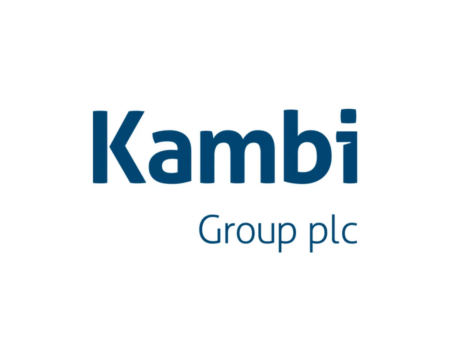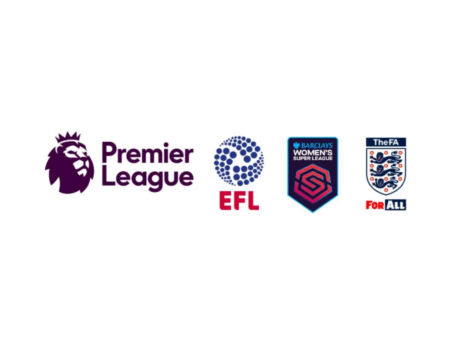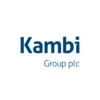Recently, the European Council approved the European Union’s new Anti-Money Laundering (AML) package, marking the final step in the EU legislative process for this significant framework aimed at combating financial crime. This new package is a critical development in enhancing the EU’s strategies against money laundering and terrorist financing.
The European Gaming and Betting Association (EGBA) has expressed robust support for the finalized AML package, highlighting its potential to streamline and fortify the fight against illicit financial activities across the EU. As a representative of Europe’s online gambling operators, EGBA has actively contributed to the revision of AML rules and is poised to update its industry guidelines in response to the new regulations.
Key Components of the New AML Package
Establishment of the European Anti-Money Laundering Authority (AMLA)
A pivotal feature of the new AML package is the creation of the European Anti-Money Laundering Authority (AMLA). This new authority will serve as a centralized body to oversee AML efforts across EU member states, ensuring consistent and effective enforcement of AML policies. AMLA’s responsibilities will include direct supervision of certain high-risk entities and the facilitation of cooperation between national AML authorities.
6th Anti-Money Laundering Directive (AMLD6)
The 6th Anti-Money Laundering Directive introduces comprehensive national provisions concerning the supervision and powers of national AML authorities. This directive aims to standardize the approach to AML supervision across the EU, enhancing the ability of national authorities to detect and prevent money laundering activities. The AMLD6 is expected to close existing regulatory gaps and ensure a more unified and robust AML framework throughout the EU.
New Anti-Money Laundering Regulation (AMLR)
The Anti-Money Laundering Regulation (AMLR) is another cornerstone of the new package. It sets out detailed measures related to due diligence, transparency of beneficial ownership, and other critical aspects of AML compliance. One of the key provisions of the AMLR is the requirement for a harmonized reporting format for Suspicious Transaction Reports (STRs), ensuring uniformity in STR requirements across all EU member states.
Harmonised Reporting for Suspicious Transaction Reports (STRs)
The new AMLR introduces a harmonized reporting format for Suspicious Transaction Reports (STRs). This means that all EU member states will follow the same STR requirements, significantly simplifying the reporting process for businesses operating in multiple jurisdictions. This harmonization aims to improve the efficiency and effectiveness of suspicious activity reporting, thereby enhancing the overall AML efforts within the EU.
Impact on Europe’s Online Gambling Operators
Enhanced Compliance and Regulatory Clarity
For Europe’s online gambling operators, the finalization of the new AML package brings several benefits. The unified regulatory approach across EU member states will provide greater clarity and consistency in compliance requirements. This is particularly advantageous for operators working across multiple jurisdictions, as it reduces the complexity and administrative burden associated with navigating diverse regulatory frameworks.
Industry Guidelines and Preparation
Dr. Ekaterina Hartmann, EGBA’s Director of Legal and Regulatory Affairs, emphasized the importance of aligning industry guidelines with the new rules. The EGBA is set to review and update its AML guidelines to ensure their alignment with the newly finalized rules. By adhering to these updated guidelines, operators can proactively prepare for the forthcoming EU rule changes and contribute positively to the fight against money laundering.
Dr. Hartmann stated, “We welcome the finalization of the new anti-money laundering package. EGBA has actively followed and contributed to the revision of the AML rules at EU-level and believes the new rules will benefit Europe’s online gambling operators, especially those operating in multiple jurisdictions, by ensuring a single regulatory approach across EU member states.”
Proactive Measures and Industry Collaboration
With the finalization of the AML package, EGBA members are encouraged to sign up for the updated guidelines. This proactive stance will enable operators to stay ahead of regulatory changes and demonstrate their commitment to AML compliance. By fostering industry collaboration and adherence to best practices, EGBA aims to bolster the sector’s integrity and resilience against financial crimes.
Timeline for Implementation
The new AML Regulation (AMLR) is set to come into force three years after its publication in the Official Journal of the EU. This transitional period allows ample time for member states and affected businesses to adapt to the new requirements. During this period, EGBA will continue to provide guidance and support to its members, ensuring a smooth transition to the new regulatory landscape.
Conclusion: The AML Package
The European Gaming and Betting Association’s support for the EU’s finalised AML package underscores the importance of robust and harmonized regulations in combating financial crime. The establishment of the European Anti-Money Laundering Authority, coupled with the new directives and regulations, represents a significant advancement in the EU’s approach to AML efforts. For online gambling operators, this unified framework promises enhanced compliance, reduced complexity, and a more level playing field across the EU.
EGBA’s proactive engagement and the upcoming updates to its industry guidelines demonstrate the sector’s commitment to maintaining high standards of integrity and transparency. By preparing for the new rules and adhering to best practices, Europe’s online gambling industry can continue to thrive while effectively combating money laundering and ensuring a safer environment for all stakeholders.
FAQs on the European Gaming and Betting Association (EGBA) and the EU’s New AML Package
1. What is the new AML package approved by the European Council?
The new AML package approved by the European Council includes a comprehensive framework aimed at combatting financial crime within the EU. It features the establishment of the European Anti-Money Laundering Authority (AMLA), the 6th Anti-Money Laundering Directive (AMLD6), and a new Anti-Money Laundering Regulation (AMLR).
2. What is the role of the European Anti-Money Laundering Authority (AMLA)?
The European Anti-Money Laundering Authority (AMLA) will serve as a centralized body overseeing AML efforts across EU member states. Its responsibilities include direct supervision of certain high-risk entities and facilitating cooperation between national AML authorities.
3. What does the 6th Anti-Money Laundering Directive (AMLD6) entail?
The 6th Anti-Money Laundering Directive (AMLD6) introduces comprehensive national provisions on the supervision and powers of national AML authorities. It aims to standardize AML supervision across the EU, closing regulatory gaps and enhancing the ability of national authorities to prevent money laundering activities.
4. What measures are included in the new Anti-Money Laundering Regulation (AMLR)?
The new Anti-Money Laundering Regulation (AMLR) outlines measures related to due diligence, transparency of beneficial ownership, and the harmonization of Suspicious Transaction Reports (STRs). This regulation aims to improve the efficiency and effectiveness of AML compliance across all EU member states.
5. How will the harmonized reporting format for Suspicious Transaction Reports (STRs) benefit businesses?
The harmonized reporting format for Suspicious Transaction Reports (STRs) ensures that all EU member states follow the same STR requirements. This simplification will benefit businesses operating in multiple jurisdictions by reducing the complexity and administrative burden associated with different reporting standards.
6. What impact will the new AML package have on Europe’s online gambling operators?
The new AML package will provide greater regulatory clarity and consistency for Europe’s online gambling operators, especially those operating across multiple jurisdictions. This unified approach will reduce complexity and administrative burdens, enhancing compliance and regulatory adherence.
7. How is the EGBA responding to the finalization of the new AML package?
The EGBA has expressed strong support for the new AML package and plans to review and update its industry guidelines to align with the new rules. By doing so, the EGBA aims to help its members proactively prepare for the upcoming changes and contribute positively to AML efforts in the EU.
8. What did Dr. Ekaterina Hartmann, EGBA’s Director of Legal and Regulatory Affairs, say about the new AML package?
Dr. Ekaterina Hartmann welcomed the finalization of the new AML package, stating that it will benefit Europe’s online gambling operators by ensuring a single regulatory approach across EU member states. She emphasized the importance of updating industry guidelines to align with the new rules.
9. How can online gambling operators prepare for the new AML regulations?
Online gambling operators can prepare for the new AML regulations by signing up for the EGBA’s updated industry guidelines. This proactive approach will help them stay ahead of regulatory changes and demonstrate their commitment to AML compliance.
10. When will the new Anti-Money Laundering Regulation (AMLR) come into force?
The new Anti-Money Laundering Regulation (AMLR) is set to come into force three years after its publication in the Official Journal of the EU. This transitional period allows ample time for member states and businesses to adapt to the new requirements.
11. How will the new AML package enhance the fight against financial crime in the EU?
The new AML package will enhance the fight against financial crime in the EU by providing a unified regulatory framework, establishing a centralized authority (AMLA), and harmonizing reporting requirements. These measures will strengthen the overall effectiveness and consistency of AML efforts across member states.


















